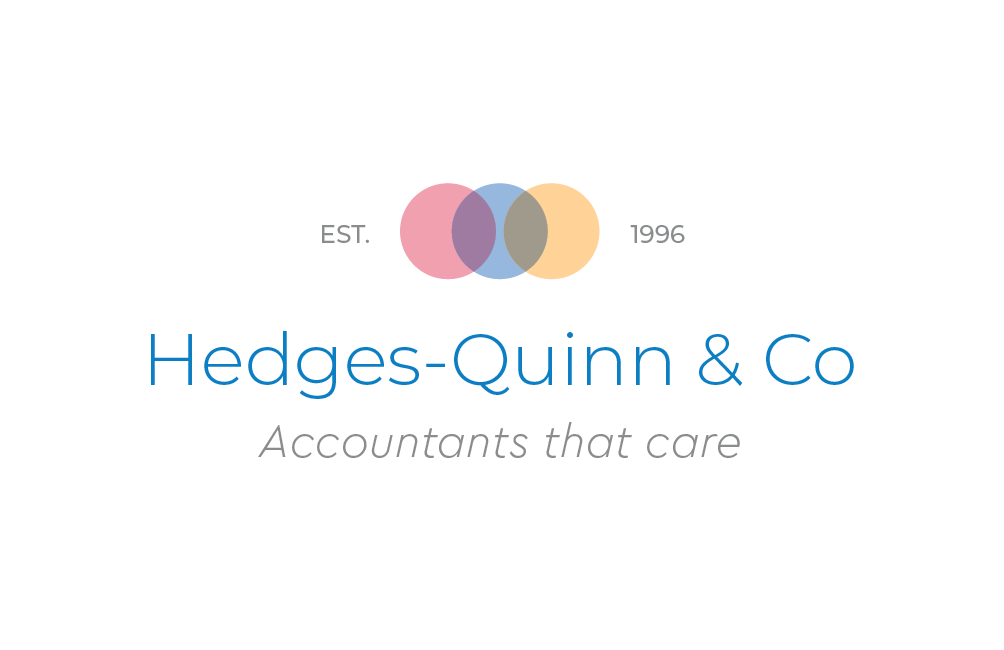
Should I be VAT registered?
Simply, if your VAT taxable turnover is more than £85,000, then yes, you must register with HM Revenue and Customs.
Chartered Certified Accountant
Hayley Hedges-Quinn
Read on for Hayley Hedges-Quinn’s thoughts on VAT registration and what it for means for you.
Alright, so what exactly is VAT?
Although some things are exempt, Value Added Tax (VAT) is an amount added to virtually everything you buy. The concept being, the percentage paid remains the same, so consumers pay a ‘tax’ to the government on the products they buy based on the value of the products. The greater the product value, the greater the VAT paid. At the time of writing, the UK’s standard rate is 20%, for certain items there is a reduced rate e.g. children’s car seats and home energy is 5% and zero rate is just that – you don’t pay VAT on selected essential foods and children’s clothes.
What is VAT taxable turnover?
This is the total value of everything you sell that is not exempt from VAT. The term turnover is often confused with profit — but they are two different things. Turnover is the total sales made by a business in a certain period. It's sometimes referred to as ‘gross revenue’ or ‘income’. Profit is the amount that remains after you have paid all your expenses.
Say what???
Yes, it is a little bonkers. But this is important, as it can determine whether you need to register for VAT.
Ok, so what is exempt from VAT?
There’s a variety of VAT exempt services such as:
Alongside services, certain goods are also VAT exempt, as are grants and services with a supply origin outside the UK.
Ok, so what is exempt from VAT?
There’s a variety of VAT exempt services such as:
- Financial services
- Insurance sales
- Income from rental properties
- Building sales
- Winning on the lottery, betting or gaming
Alongside services, certain goods are also VAT exempt, as are grants and services with a supply origin outside the UK.
Ok, what happens if my taxable income exceeds £85,000 and I don’t register for VAT?
HMRC will not be happy. You will most likely face a penalty based on the amount of VAT owed and how late you’ve been with your registration. If you’re up to nine months late you pay 5%, between nine and 18 months late you will be charged 10%, and anything over 18 months late is a hefty 15%. You will also have to pay the VAT on top of the penalty.
Ouch, but what happens if I forgot to pay my VAT?
Try not to forget is the simple answer! Essentially, if you think your turnover is likely to exceed the £85,000 threshold during the next 30 days, you must register for VAT. However, there are some extenuating circumstances which HMRC may view as ‘reasonable excuses’, for example:
If you genuinely think you have a case, you can appeal against a VAT penalty within 30 days from the date you were notified, and hope HMRC view your circumstances as qualifying.
- Serious illness, or serious illness of a family member
- Bereavement
- Legitimate doubt as to whether you’re self-employed
- A legitimate problem with HMRC online
If you genuinely think you have a case, you can appeal against a VAT penalty within 30 days from the date you were notified, and hope HMRC view your circumstances as qualifying.
Blimey, it’s all quite a lot to take in …
You’re right, it is! Basically, the important information is:
However, if you’re unsure about any of the above information or are unclear how to calculate your taxable turnover, please call Hayley at Hedges-Quinn Accountants.
- The VAT Registration threshold from 1 January 2021 is £85,000 per annum on a rolling 12-month basis
- You must register for VAT within 30 days of the month end in which you exceeded the threshold
- If you expect to exceed the threshold in the next 30 days, then you must register for VAT at the start of the 30 days
- If you register late you will be liable for VAT from the date you should have registered, so it’s important to keep a track of your registering date
However, if you’re unsure about any of the above information or are unclear how to calculate your taxable turnover, please call Hayley at Hedges-Quinn Accountants.
Hayley will happily chat through all the information directly affecting you and your business — she’s much friendlier than HMRC!
Call Hayley today on 01473 657853 and alleviate VAT worry.
Call Hayley today on 01473 657853 and alleviate VAT worry.
Follow Hayley on Linkedin and join the mailing list
